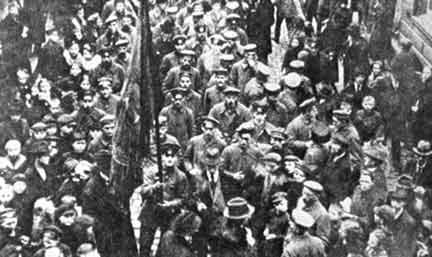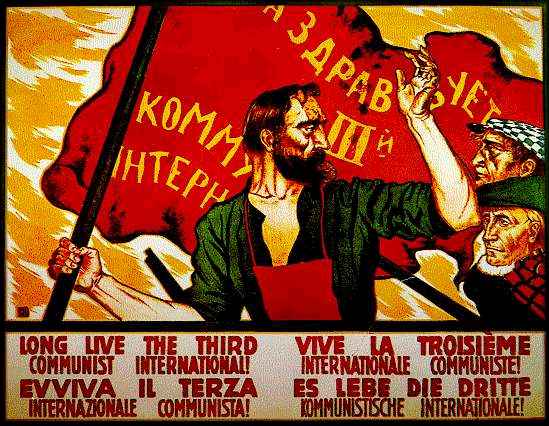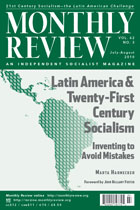Lenin
`Lenin and workers' control', by Didier Limon (1967)

May Day in St Petersburg, 1917.
By Didier Limon, translated, edited and introduced by Keith Rosenthal
December 22, 2010 -- This phenomenal, historical and analytical study by Didier Limon -- which first appeared in Autogestion: études, débats, documents, cahier no. 4, pp. 65-111 (Paris, December 1967) -- has, until now, not been translated into English. This is a shame on many levels for it stands nearly peerless in its meticulous treatment of the specific subject it takes up. That is, the debates and discussions surrounding the implementation of workers’ control of production within the first months after the October revolution of 1917 in Russia.
Lenin and Trotsky on Wikileaks (well, sort of)

German workers strike against the war, January 1918.
December 7, 2010 -- November 8, 1917, the day after the victory of Bolshevik-led Russian Revolution, the first foreign policy decision of the revolutionary government was the "Decree on Peace", written by Lenin and adopted on that day by the second All-Russian Congress of Soviets. It proposed an end to the carnage of World War I on the basis of a "just, democratic peace". It declared the abolition of existing secret treaties and promised that all future treaties would be negotiated "openly in full view of the whole people".
Alex Callinicos on imperialism, two reviews

Review by Barry Healy
Imperialism and Global Political Economy
By Alex Callinicos
Polity, 2009
227 pages
October 2, 2010 -- The topic of “imperialism” greatly occupied the minds of late-19th and early-20th century socialists. Some of the tradition’s greatest minds toiled mightily to discern the fundamental changes in capitalism that were occurring before their eyes.
Capitalism, as analysed by Karl Marx, had grown fat in its European heartland through the ruthless exploitation of colonies and the brutal factory system in its coal dark cities. But suddenly new phenomena started to appear in the late 1800s.
Banking capital moved from being a support for industrial capital, first merging into and then dominating manufacturing. This agglomeration of money power created massive industrial complexes, like Germany’s famous Krupps steelworks.
The colossal scale of these industrial works dwarfed human beings.
John Riddell: (Audio) The Comintern, 1919-1923: The two souls of centralism

Market greed or a planned economy for human need?
By Dave Holmes
[This is the text of a talk given as part of Melbourne Socialist Alliance’s Socialist Ideas Seminar series on July 28, 2010.]
John Bellamy Foster on Venezuela: Marxism and `vernacular revolutionary traditions'

The following article is the Foreward to the July-August 2010 issue of the US socialist magazine Monthly Revi
The socialist revolution and the mass revolutionary party

Lenin: "In its struggle for power the proletariat has no other weapon but organisation".
Nadezhda Krupskaya, a revolutionary fighter, feminist and pioneer of socialist education

By Graham Milner
March 7, 2010 -- Born into a family of radical Russian gentry in 1869, Nedezhda (which from Russian translates as "Hope") Konstantinovna Krupskaya became, with her partner V.I. Lenin, a founder and central leader of the organisation of revolutionaries that led the Russian working class to power in October 1917 -- the Bolshevik Party (majority faction of the Russian Social Democratic Labour Party).
Lars T. Lih's contribution to a Leninism for the 21st century
Lenin Rediscovered: What Is To Be Done? In Context


